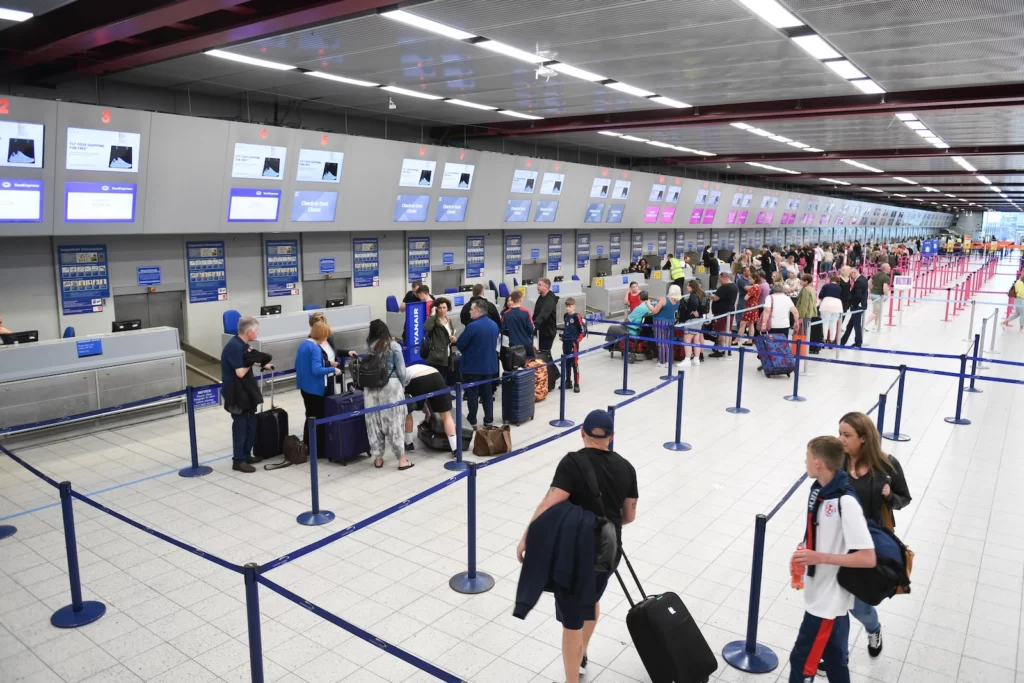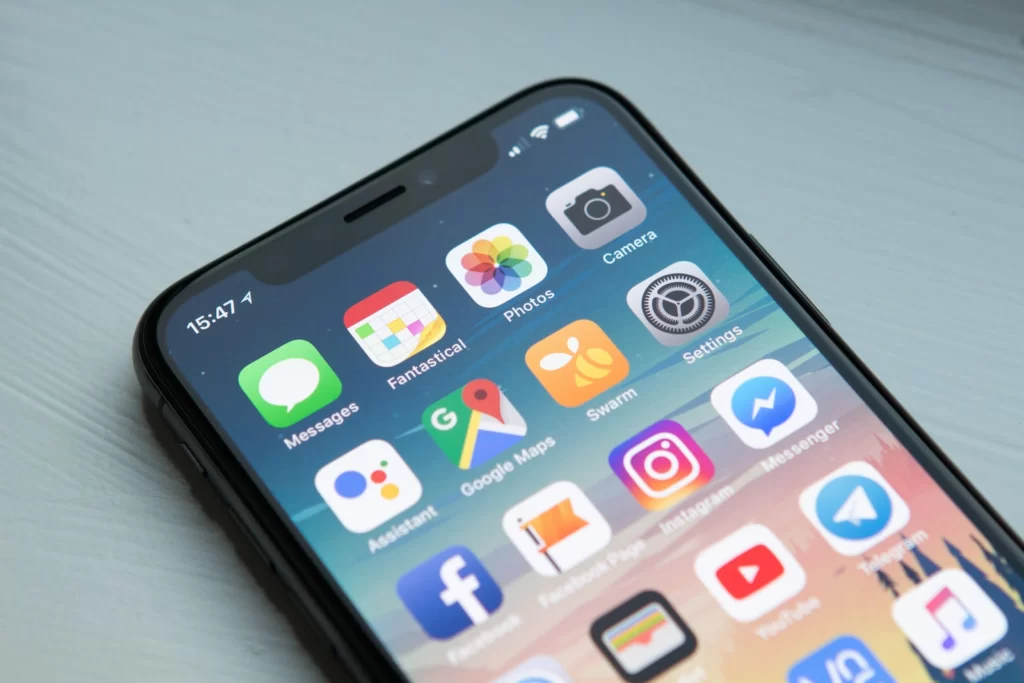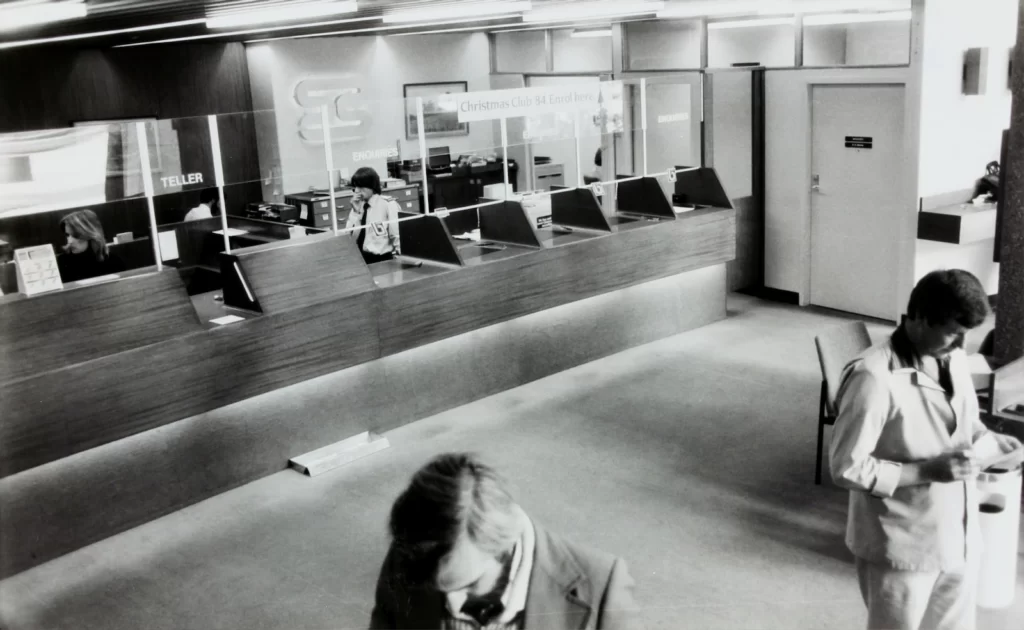If you’re a prospective student who has just received admission to a university in Georgia or a new student who has recently arrived in the country, this comprehensive guide is tailored to ensure that your transition into Georgian student life is as smooth as possible. Bin Mushtak, a final-year medical student at Tbilisi State University (TSU), is here to provide you with valuable insights and advice that will help you navigate the challenges of studying and living in Tbilisi.
About the Author
Bin Mushtak is a medical student at TSU and runs an Arabic channel dedicated to education and career opportunities abroad.
Arrival at Tbilisi Airport

Welcome to Tbilisi
The moment you step off the plane at Tbilisi Airport, you’ll immediately notice the warm welcome that Georgia extends to its international students. To help you get started, connect to the airport’s public WiFi network, aptly named “Tbilisi Loves You.” While this network may not offer lightning-fast speeds, it’s a convenient way to let your loved ones know that you’ve arrived safely.
Immigration Process
If you possess a student visa, your entry into Georgia should be relatively smooth. However, immigration officers may ask you some basic questions to ensure that your stay in the country is in accordance with your visa conditions. It’s essential to be well-prepared for these inquiries. Common questions you might encounter include queries about your chosen university, the duration of your program, your intended accommodation, and any previous visits to Georgia.
Baggage and Customs
After successfully clearing immigration, you can proceed to collect your baggage. While it’s uncommon, there may be instances where the customs department requests to inspect your luggage. In such cases, remain calm and cooperate with the authorities.
Currency Exchange and SIM Card
Once you’ve retrieved your luggage, it’s time to take care of two essential tasks: currency exchange and obtaining a local SIM card.
Currency Exchange
Exchange some of your home currency for Georgian Lari (GEL) at the airport’s currency exchange counters. While it’s convenient, keep in mind that exchange rates at airports are often less favorable. If possible, exchange only a small amount here to cover immediate expenses.
SIM Card
Getting a local SIM card is crucial for staying connected during your time in Georgia. While there are several mobile service providers, two of the most popular options are Magti and Cellfie. Both offer good network coverage and high-speed internet. You’ll be pleasantly surprised by how affordable mobile data is in Georgia, especially if you come from a Gulf country where data plans can be quite expensive. For example, in Saudi Arabia, you might have paid nearly $100 USD for unlimited internet for one month. In Georgia, you can get three months of unlimited internet for less than $20 USD.
Important: Watch Out for Commission Fees
When exchanging money at currency exchange counters, always make sure there is no commission fee involved. Some exchanges may apply hidden charges. Unless there’s a clear sign indicating zero percent commission, ask the exchange staff verbally if there are any fees. Before signing any exchange documents, check the total amount you will receive. Currency exchange scams can happen, as they did to me during my first year. The receipt I signed mentioned the total exchange price in bold, but the cashier pinned a small receipt on top of the commission details in small letters and in Georgian language. Consequently, I received 20% less than I anticipated. To avoid falling victim to such scams, always exercise caution when exchanging currency.
Currency Exchange Rates
To ensure that you’re getting the best exchange rate, compare it with the national exchange rate or check the buying and selling rates. The difference should not exceed 0.02 GEL.
Essential Apps

Before delving further into your journey as a student in Georgia, let’s set you up with some essential apps that will prove invaluable in your daily life.
Google Lens
This handy app allows you to instantly translate Georgian text by simply pointing your camera at it. It’s an incredibly useful tool for navigating a country with a language you may not be familiar with.
Transportation Apps
Navigating Tbilisi’s transportation system can be a breeze with the right apps. Two recommended options for getting around the city are Yandex and Bolt.
Yandex
Yandex is often the more economical choice for taxis. It provides a cost-effective and convenient way to travel around the city.
Bolt
While Bolt may be slightly more expensive, many passengers prefer it for its focus on safety and its drivers’ professionalism. If you don’t have someone to pick you up from the airport, using the Bolt app is often more cost-effective than taking a regular airport taxi. It also allows you to specify your exact destination.
Food Delivery
As a student, you’ll inevitably find yourself relying on food delivery services. You’re likely to be inundated with advertisements for two popular food delivery apps: Wolt and Glovo. Both offer a wide selection of restaurants and cuisines to choose from. You can often negotiate lower prices for long-term agreements with restaurants if you plan on ordering regularly.
Public Transport Apps
Tbilisi has a well-connected public transportation system, and there are a couple of apps that can help you navigate it effectively.
Google Maps
Google Maps is a reliable tool for finding your way around the city using public transportation. Simply input your destination, click on the “Directions” option, and then select the “Transport” tab to see all the available bus and metro options that will take you there.
Tbilisi Live Bus
For real-time information about bus arrivals at your nearest bus stop, consider using the Tbilisi Live Bus app. This app is particularly helpful for deciding whether you should walk, jog, or sprint to catch your bus on time. Some residents claim that Yandex Maps is even more accurate, but many students find Google Maps to be sufficient for their needs.
Communication Apps
To stay connected with friends, family, and fellow students, you’ll want to have a few communication apps at your disposal.
Viber
Viber is widely used in Georgia, so it’s a good idea to install it if you haven’t used it before. Many apartment owners and businesses prefer to communicate via Viber, so having this app will be advantageous.
In Georgia, Facebook is almost a mandatory social platform. You’ll find that nearly everyone uses it, and some institutions even use it as their official announcements platform. In fact, you might find yourself creating a Facebook account during your first week in Georgia. While it may not have been your preferred social media platform in the past, it’s an essential tool for staying connected and informed during your stay.
Join Helpful Facebook Groups
There are numerous Facebook groups created specifically for students and expats living in Tbilisi. These groups can be incredibly useful for finding information, asking questions, and connecting with others who are in the same boat as you. Consider joining these groups to tap into a supportive community that is eager to assist newcomers.
Further App Downloads
As your needs evolve, you may find yourself downloading additional apps, such as mobile banking apps, network service provider apps, parking apps, and more. Feel free to explore and download these apps as required to make your life in Tbilisi more convenient.
Accommodation Search

Finding suitable accommodation in Tbilisi can be one of the more challenging aspects of settling into your new life as a student. If you’re not using an agent, there are several avenues you can explore to secure a place to live.
Listing Websites
Listing websites like myhome.ge are valuable resources for finding available apartments in Tbilisi. These websites often allow you to use filters to narrow down your search based on your preferences, such as location, size, and price. However, keep in mind that navigating these listings can be more complex than it appears at first glance.
Language Barriers
One of the primary challenges you may encounter is the language barrier. Most apartment owners in Georgia do not speak English fluently. Instead, they typically communicate in either Georgian or Russian. Therefore, it’s crucial to be prepared for language differences when inquiring about available apartments.
High Demand
Another hurdle to be aware of is that apartments listed on these websites, especially those that have been listed for three or four days or longer, are often already taken by the time you contact the owners. The demand for housing, particularly in popular student areas, can be high.
Discrimination
In some cases, you might face challenges securing an apartment due to discrimination based on factors such as race, gender, or nationality. This issue became more prevalent last year when apartment prices in Tbilisi surged to triple their usual rates. Therefore, finding an affordable apartment in a desirable location with good conditions can be difficult.
Using an Agent
If you’d prefer a more straightforward approach to securing accommodation, consider enlisting the services of an agency like Admissionex LLC, which specializes in assisting international students. Admissionex LLC is an officially registered company in Georgia that provides comprehensive services to students from around the world, including support with admissions, airport pickup, obtaining a local SIM card, setting up a bank account, arranging campus visits, helping with student visas and ID cards, and more. To explore their offerings further, visit admissionex.com.
Hostels
If you’re open to temporary housing options or are on a budget, you might want to consider staying in a hostel for a short period. Hostel listings can be found on booking websites and Facebook groups. Keep in mind that you can often negotiate better rates for longer-term stays.
Opening a Bank Account

To fully integrate into student life in Georgia and to complete essential administrative tasks, such as applying for a student ID card, you’ll need a local bank account. It’s important to note that the process of opening a bank account in Georgia may differ depending on your nationality and the bank you choose. Here’s an overview of what to expect:
Preferred Banks
TBC Bank used to be the preferred choice for international students due to its ease of use and efficiency. However, the banking landscape in Georgia has evolved, and TBC Bank now has specific regulations and fees associated with their services. As a result, many students now recommend Bank of Georgia as a better option for opening an account.
Challenges for Some Nationalities
Opening a bank account in Georgia can be straightforward for some students, but others may face difficulties, especially if their nationality is not common among the student population. If you encounter difficulties at one bank, don’t give up; try different banks until you find one that can assist you.
Student ID Card Application

Applying for a student ID card, also known as a Temporary Residence Card (TRC), is a crucial step in your journey as a student in Georgia. This card will serve as your legal identification and grant you various privileges and benefits during your stay.
Timing is Critical
One of the most critical aspects of the TRC application process is timing. To ensure a smooth application, you must have at least 40 legal days in Georgia before submitting your application. Failing to meet this requirement can lead to additional complications, such as having to apply for a visa extension or obtaining a different type of visa, which can be costlier and more time-consuming. Therefore, it’s essential to apply for your TRC as soon as you have gathered all the necessary documents.
Required Documents
To apply for your TRC, you’ll need specific documents:
University Statement (Tsnoba)
The first document you’ll need is a statement from your university indicating your faculty and your expected year of graduation. In Georgian, this document is called a “Tsnoba.” The university will issue this statement only after you have paid the tuition fees for the semester. It’s important to note that private universities often require payment of the full year’s tuition fees before they will issue this statement. You can make tuition payments through either international transfers from your home country (which may take up to a week) or local transfers (which typically take less than two business days).
Some universities, such as TSU, offer a direct payment option as a bill through mobile banking. When you use this method, the funds are credited to your university portal almost instantly. Although your tuition fee might be in US dollars, you will need to make the payment in Georgian Lari (GEL). Keep in mind that the exchange rate of the Georgian Lari can fluctuate significantly. To maximize your funds, it’s advisable to check the national bank’s exchange rate and then make the payment promptly to avoid falling victim to currency fluctuations.
Keep Records of Tuition Fee Payments
A piece of advice: always retain copies of your tuition fee receipts for all payments you make. Most banks offer the convenience of downloading receipts through their mobile banking apps.
Bank Statement
Your bank statement will serve as proof of your financial means to cover your living expenses in Georgia for at least one year. For your initial TRC application, you will typically receive a one-year TRC, although some nationalities may receive a TRC that covers their entire period of study from the first application. To meet the financial requirements, ensure that you have a minimum of $2000 USD in your bank account. When you apply for your TRC for the second time, it’s recommended to have a bank statement showing $8000 to $10,000 USD to increase your chances of receiving a TRC that extends until your graduation.
Be Mindful of Application Windows
An important note: when renewing your TRC, you must apply within the last 90 days of your current TRC’s validity and before the 40-day mark. This means
that you should have at least 40 legal days remaining to apply. For example, if your TRC expires on December 30th, your application window opens in October, and you must submit your application before mid-November. To ensure you don’t miss this critical deadline, consider setting reminders in your calendar with email notifications.
Translated Passport
You will need to have your passport translated into Georgian and notarized. Translation services are available from various providers across Tbilisi, and the cost typically ranges from 30 to 50 GEL per page for English documents.
Application Process

With your university statement (Tsnoba), bank statement, and translated and notarized passport in hand, you’re ready to begin the TRC application process. Here’s what you can expect:
Public Service Hall
The Public Service Hall is where you will submit your TRC application. It’s important to note that the statements from your university and bank must be used within ten days of issuance. Additionally, don’t forget to bring your original passport with you.
English-Speaking Staff
The good news is that the Public Service Hall has English-speaking staff, so you won’t face language barriers when you arrive. Here’s how the application process typically unfolds:
1. Photo Booth: Upon entering the Public Service Hall, you’ll notice photo booths. Use one of these booths to take an electronic photo for your TRC application. Be sure to keep the receipt with the barcode.
2. Information Desk: Head to the information desk and inform the staff that you want to apply for a TRC. They will provide you with a waiting number and direct you to the appropriate area.
3. Area Waiting: Proceed to your designated area and wait for your turn.
4. Document Submission: Once you’re called, submit all your required documents to the service representative. They will provide you with a simple form to complete on the spot. Double-check that you have all the necessary documents, and make sure your information is accurate before signing the paper.
5. Processing Fee: You will be asked to pay a processing fee, which can range from 300 to 600 GEL, depending on the processing time you select (e.g., 10 days, 20 days, or 30 days).
Waiting for a Decision
With your TRC application submitted, all that’s left to do is wait for a decision. It’s important to stay vigilant during this period, as you will receive text messages from either the Service Development Agency (SDA) or the Public Service Hall (PSH) regarding the status of your application. Never ignore these messages.
Receiving Your TRC
If your application is approved, you’ll need to visit the Public Service Hall again to print your TRC card. This typically costs around 60 GEL. During this visit, you must provide a document proving your legal address that has been notarized. Alternatively, you can purchase a legal address document for around $100 USD. After ten days, return to collect your TRC.
Conclusion
With your TRC in hand, you’re now ready to enjoy your studies and experience life in Georgia. While it’s possible to navigate daily life in Tbilisi without learning the local language, consider picking up some Georgian for better performance in practical classes and for a richer cultural experience.
Public Transportation Tips

Before we conclude, here are some additional tips for using public transportation in Tbilisi:
Metro and Bus Payments
You can pay for metro and bus rides using your bank card or by purchasing a separate transport card, which can be obtained from any metro station. Alternatively, you can buy a subscription card, which can be a cost-effective option if you plan to use public transport frequently. With a subscription card, you won’t pay more than 1 GEL per day, and you can use it up to 20 times daily.
Student Card
As a student, you should consider obtaining a student card from Express Bank. You can order this card online or from any of the bank’s terminals. You’ll be able to pick up your card from Express Bank kiosks located in all metro stations. This student card offers significant benefits, including an 80% discount on transportation costs (0.2 GEL instead of 1 GEL per ride). Additionally, it provides discounts at various places with entry fees. Don’t miss out on this valuable student card; make sure to get it as soon as possible.
Conclusion
Congratulations, you’ve reached the end of this comprehensive guide for new students in Tbilisi, Georgia. I hope you find this information helpful as you embark on your educational journey in this vibrant and welcoming country. Remember to share this guide with your fellow students to ensure that everyone can benefit from these valuable insights. If you have any questions or need further assistance, don’t hesitate to reach out. Welcome to Georgia, and best of luck with your studies!